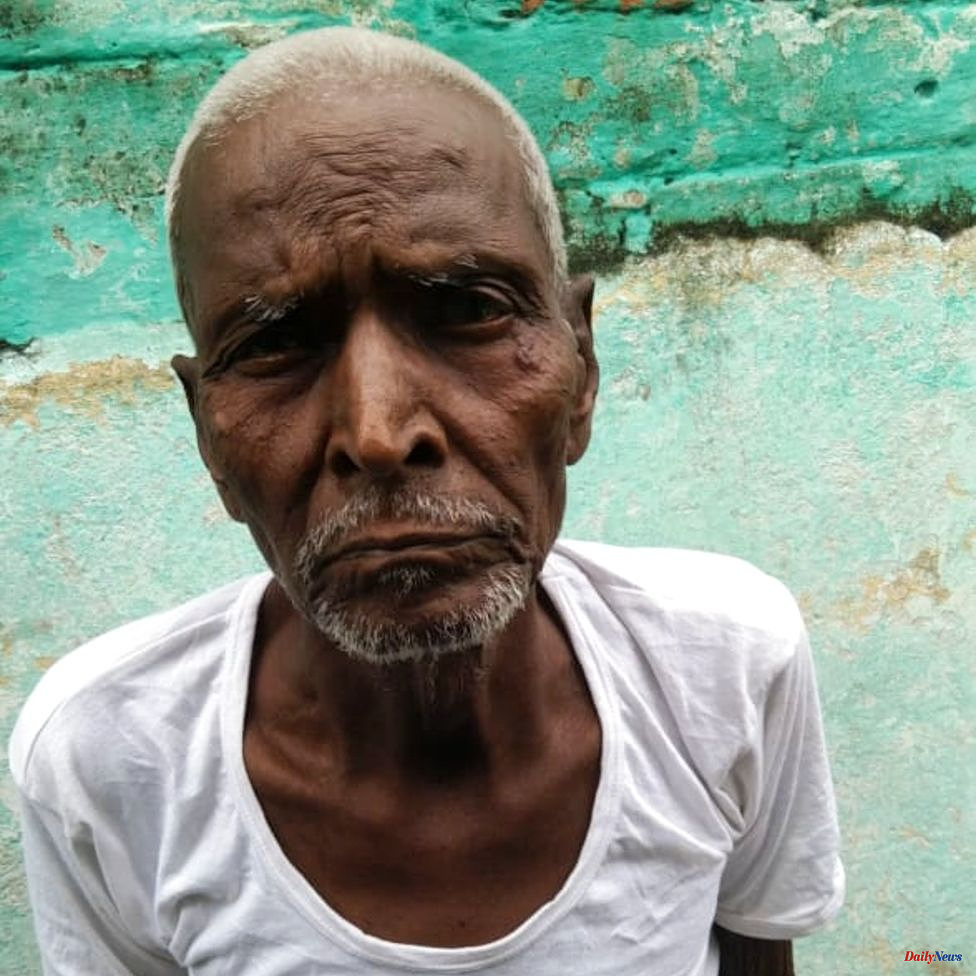You cannot own land if you're dead. This fact has resulted in many cases in India where people were registered dead and their property taken away. Many have found that they cannot do anything about it, according to Chloe Hadjimatheou of BBC.
Padesar Yadav appears to be healthy and well so it was a surprise for him to find out that he had died.
After the deaths of his daughter-in-law and son-in law, he found himself in his late 70s raising two grandchildren. He sold the land he had inherited his father's village to help pay for their education and upbringing.
He received an odd telephone call a few months later.
"The man to whom I had sold the land called me to inform me that there was a legal case against him." He claimed that my nephew was telling everyone I had died, and that an impostor had purchased the land.
Yadav immediately traveled from Kolkata, where his family resides, to reach the village in Uttar Pradesh's Azamgarh district. People were stunned to see him arrive at his destination.
They stared at each other as if they were looking into a ghost, and then said, "You are dead!" "Your mourning rituals are complete!"
Yadav claims that he was close to his nephew and that the younger man often visited him in the city. Yadav informed Yadav that he planned to sell his family's land and the visits ended.
Now he learned that his nephew claimed the land as his inheritance. Yadav confronted the man.
He said, "I've never seen him in my life." My uncle is now dead. Yadav says, "I was so shocked," "I said, "But I am standing there, alive, right before you, how could you not recognize me?"
Yadav claims he cried for days, but then he got up and called the Association for the Living Dead of India.
Lal Bihari Mritak is the organisation's leader. He is a man in his 60s who has lived three-quarters of his life as a supposedly deceased man.
Bihari is from a very poor family. Bihari was seven years old when he was sent to work in a factory that made saris. He didn't learn to read or write. He opened his first textile workshop in his 20s in a nearby town. However, he needed a loan to start the business and the bank required collateral.
In order to obtain the title to his land, he went to Khalilabad (also in Azamgarh) and asked for the appropriate documents.
The accountant of the village looked up his name, and found the documents. But he also found a death cert that indicated that Lal Bihari had died.
Bihari's claims that he could not possibly be dead because of his position right there were empty.
Bihari recalls being told, "It says here on the papers in black-and-white that you're deceased."
Bihari died at the local authority. The land and property that he had inherited from his father were transferred to his uncle.
Bihari still doesn't know if it was a clerical mistake or a fraud by his uncle. Bihari was devastated in both cases. Bihari's workshop was forced to close, and his family was left homeless. Bihari wasn't going to accept his death and go quietly. He soon realized that he was not the only one. Families were ripping off people all over the country, declaring them dead to get their land.
Bihari founded the Association for the Living Dead in order to bring them together. According to one estimate, there are around 40,000 living people in Uttar Pradesh. He also started a campaign to raise awareness about their dire situation.
He also added the suffix mritak – meaning "the late", to his name, and became "the late Lal Bihari", while protesting with others in his position to get the attention of the media. It wasn't enough for him to improve his situation.
Then he decided to run for national elections. He succeeded in getting the name of a deceased man on the ballot. He almost committed suicide three times after he failed to convince authorities that he was still alive.
In desperate times, he took his uncle's child and broke the law. He hoped that the police would arrest him, and force him to admit that he was alive. After all, you cannot arrest a man who is dead. The police realized what he was doing and declined to assist.
Bihari was not able to find justice through his own efforts but rather because of the system that had turned his entire life upside-down. After 18 years of being told that he was dead, a new Azamgarh district magistrate took a fresh look at the case and concluded that Lal Bihari was still alive.
Bihari claims that through his Association for the Living Dead, he has helped thousands of people across India who are facing similar struggles.
He says that many of them have not had the same luck as him. Some people have died naturally after years of fighting for their rights, while others lost their fights.
Tilak Chand Dahakad is the man who has been right from the beginning of his struggle. Tilak Chand Dhakad, 70 years old, has to look at the Madhya Pradesh farmland from behind a fence when he visits it. The 70-year-old man is suffering from a number of health problems and may never be able to walk again through those fields.
Dhakad, a young man, moved to the city with the hopes of having a better job and better living conditions for his family. He rented his land out to a couple while he was gone.
He only discovered that he wasn't the original owner of the land after he signed some documents.
"The local authority officer told me I was dead. "How could this happen?" I thought. He recalls being so afraid.
Dhakad claims he discovered quickly that the couple he was renting his land from had registered him as deceased. The wife then went to court pretending to be his widow and said she was happy to give the land away.
The BBC reached out to the couple Dhakad accuses for taking his land. They refused to answer any questions.
Anil Kumar is a lawyer who has represented many living-dead cases. He estimates that there are at least 100 people in Azamgarh where Lal Bihari resides, who have been prematurely declared dead.
He says that each case is unique. Sometimes, there are clerical mistakes and other times, public officials are bribed into preparing false death certificates.
Shaina NC, spokesperson for the Bharatiya Janata Party, stated to the BBC that the current government is very diligent in enforcing laws to combat corruption.
She says, "In a country like India, you might have a few stray case which do not come up often, but the majority of cases are protected by the good governance provided by Narendra Modi, the Prime Minister."
"If there's a case for corruption, there are enough provisions within parliament to ensure that perpetrators are brought before a judge."
Anil Kumar claims that justice can be difficult when these cases are the result a fraud. He fought a case in which it took six years for his client to be proven alive. Twenty-five years later, he still awaits a verdict in his case against the man who claimed he had his client declared deceased.
Kumar states, "If these types of cases were quickly-tracked to ensure that the criminal is punished, it would strike fear in people and prevent these types of crimes."
Lal Bihari Mritak has been declared dead for more than 45 years and it's been more than 20 years since he proved he was still alive. He still hosts a rebirthday party every year with his guests seated around a beautiful, large cake. It becomes obvious to his guests as the knife cuts into the intricate icing that it is just a cardboard box decorated with a gag.
"Inside, it's completely hollow. He says that some government officials are similar to him - unjust and vacuous."
"So, I didn't cut the cake to celebrate. It is a statement about our society."
Bihari said that he still gets calls from people all over the country asking for his help to prove their existence, but that he is starting to lose steam at the age of 65 and contemplates retiring from the fight.
He says, "I don’t have the energy or the money to run the Association for the Living Dead anymore," and "and there’s no-one who can take it over."
He had always hoped that the national press would support the dispossessed and that the government would crack down on bribe-takers. But it hasn’t happened.
The man who spent 18-years trying to prove that he was still alive will soon be gone, despite not having made the necessary changes.
Reporting from the ground by Ajit Sarathi, Praveen Mudholkar and Piyush Nagpal
Neelam Krishnamoorthy was a film enthusiast. But one afternoon, a routine trip to the cinema ended in tragedy. This led Neelam to fight a long battle for justice.
A family was destroyed by film tickets












